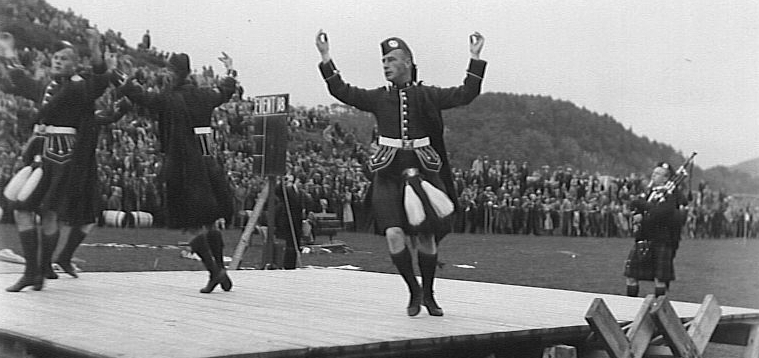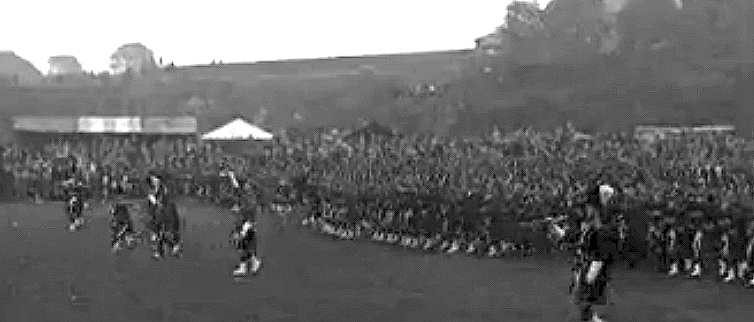[wds id=”2″]
Robert Wallace: This quiet period in the piping and pipe band season affords an opportunity to look back through old documents and magazines. Many’s the pleasant hour can be spent thus engaged. I thought I’d share this excerpt from the ‘Piping and Dancing’ magazine of September 1939 with our readers. Some reflections on it tomorrow, time permitting. There are wonderful film clips of Cowal in the 30s on British Pathé News.
Here is the article:
‘What may be an epoch-making event, as the saying has it, is the agreement by the Cowal Highland Games Committee to have the pipe band contests judged by adjudicators who will be under cover, in a tent or some convenient house. Scottish daily papers have given this out to the world, probably on the strength of a communication from some local correspondent in Dunoon, variously as a great departure from precedent and as a great concession by the Games Committee. While it may be considered as a great concession by the Games Committee it cannot, not by any stretch of the imagination, be regarded as a departure from precedent – unless, of course at Cowal. Judging from under cover has been the rule for a year or two past at several contests. This has been due to the same cause as now operates at Cowal, and it is the best of very good reasons why it should be so. The bands, themselves, want it.

‘Rightly or wrongly, some of them lesser known bands have felt that they competed under a handicap. The handicap of being lesser known, and they have felt that they were ignored by some adjudicators who were not so interested in their musical merit as impressed by the reputation of their better-known brethren. There may have been some foundation for this belief.
[wds id=”3″]
‘This will – we hope – eliminate the adjudicator who is unfit to judge. There are many such, though we do not suggest that they are to be met with at Cowal, and their elimination is overdue. It is our experience (though here, again, we do not suggest that it is to be found at Cowal) that many adjudicators have themselves so appointed by their own ability to push themselves into the notice of a committee, rather than by any knowledge of piping or music. Again, in some instances, men are asked to judge piping (solo piping particularly) who are manifestly unable to do so. Frequently, their sole recommendation for the post is possession of a ‘big hoose’. Or it may be that they are generous contributors to the funds of games committees.

‘In so far as contests for pipe bands under the jurisdiction of the Scottish Pipe Band Association are concerned, the judges are always members of the panel of judges appointed by the members themselves. This democratic method of appointment is as near being perfect as can be un this imperfect piping world. But it could be perfected. An eminent, and even highly satisfactory, pipe major is not necessarily the best judge. Not even if he has piloted a band successfully through contest after contest. And that applies to a piper who has not been a pipe major.
The first qualification of a satisfactory judge is the possession of a judicial mind; one that can weigh up the pros and cons, the light and shade , the fact and fiction. One who is not swayed by temperament nor by fad. These men are scarce. Just as scarce in the piping world as they are in the legal world. But these are the men that are needed as judges in piping. Far too many present day judges are opiniative. That is to say, they have made up their mind that one way of presenting a set musical piece is the correct way without thought for the beauty and fidelity to original theme that may be shown in another rendition. These men will never be satisfactory judges, neither to soloists, nor bands, nor even themselves.’
















Recent Comments